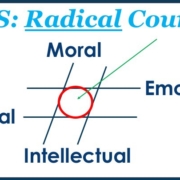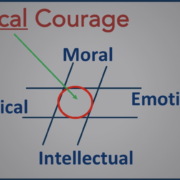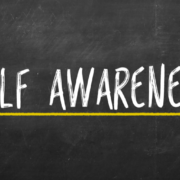It’s what you’re hearing, Listen. You don’t have to suck at listening.
Do you find yourself repeating yourself or asking others to repeat themselves? Is miscommunication a challenge at your company? This could be a result of common listening errors.
“It’s not what you heard; it’s what you’re hearing, listen.” The immortal words of deceased rap star DMX tell us, “It’s what you’re hearing, listen.”
The trouble with hearing is that it can be hard to listen. According to a 2022 Harris poll, the average company loses eight hours of productivity per week per employee due to miscommunication. That’s one day per week and 400 hours per year down the drain. At a $50 per hour wage, that’s an annual $20,000 loss. In a company with 100 employees at that average wage, you are out $2 million. As DMX might say, “Errrrrr.”
If listening skills could improve at your workplace, you definitely want to read on.
Two common listening errors are distracted listening and listening to respond.
Distracted listening occurs when you try multitasking when someone is speaking to you. Your mind pulls in two directions. You try tapping out a coherent sentence on the keyboard or phone while Jane is telling you about a problem in marketing. You’re probably looking at your screen instead of Jane. You’re hearing, but you are not listening.
Two things happen. First, your performance at each task is terrible. Your sentence is awful, and you get a fraction of Jane’s message. You waste time rewriting the sentence and asking Jane to repeat herself or acting on an erroneous understanding. Some studies suggest that your performance while multitasking is the equivalent of driving under the influence of alcohol or drugs.
Second, Jane thinks you don’t care. You may have your back to her or your eyes glued to the screen, making comments like, “I’m listening … oh, that’s awful … I’ll get on it … thanks for telling me.” Jane knows you only caught part of her message, and your lack of eye contact and reflective listening is insulting.
How do you feel when you try to talk to someone in distracted listening mode? Jane feels the same way you do.
Listening to respond is a more subtle problem I suffered for years until I learned how it affected my ability to communicate.
Listening to respond means hearing something that triggers you, and your mind drifts into crafting your response instead of listening to the entire conversation. You might be making eye contact, but your mind is focused on what you will say instead of what the other person says.
In meetings, I would play with various arguments in my head about how to counter or support a person’s point and miss the rest of their message. When I gave my response, it was often out of step with the flow of the discussion. They moved forward; I was stuck in the past because I wanted to deliver the perfect response to something someone said ten minutes ago. I was hearing but not listening.
Listening to understand is the way to go, saving you time and boosting your credibility. When you listen to understand, you give the person speaking your undivided attention, and you ask follow-up questions to make sure what they meant and what you understood are in sync.
Most people err on the side of brevity, so you’re only getting part of the message anyway, and you need them to amplify their main points. Some great open-ended questions include:
- Tell me more about X.
- When Y happened, how did you feel about that?
- Describe in more detail what you observed.
- Help me to understand your point of view on Z.
- Talk me through your thought process on this.
As they answer your questions, you want to make sure you understand their message (and to be sure they know you understand it), so put their point in your own words, beginning with statements or questions like Help me to know if I understand you correctly… May I summarize what I think are your key points on this matter before we move on? [The latter question works particularly well when someone is overexplaining or moving to a new point.]
When they say, “Yes, that’s exactly right,” you have mutual understanding and can co-create a way forward. [Check out my video on using RAVEN to encourage the psychological confidence of people to disagree agreeably.]
How well is listening to understand working for you? Send me an email and let me know!










